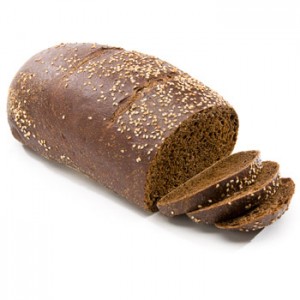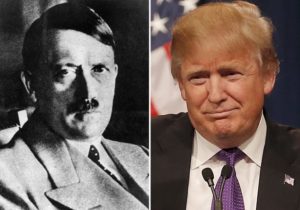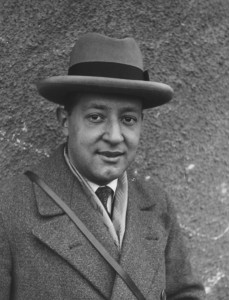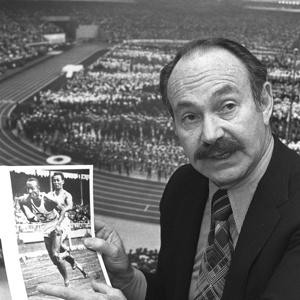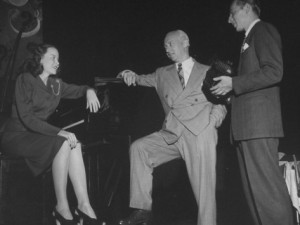HG has been reading Adolf Hitler’s biography and am startled (and distressed) how closely Der Trumperer is following the Hitler/Goebbels agenda. Everything is a lie except if pronounced by Der Trumperer and his ludicrous lackeys, Kellyanne and Spicer. There is no truth, only “alternate facts.” Unfavorable polls are “fake.” Unfavorable news is “fake news.” Judges who rule against Der Trumperer’s edicts are not really judges. They are “so called” judges. The media, traditional watchdog of the people, essential in a functioning democracy, is “the opposition”, “corrupt”, “dishonest.” The American intelligence agencies are incompetent unless they agree with Der Trumperer’s views. HG asks the basic question. Are millions of voting Americans racist, homophobic, misogynist, xenophobic, theocratic? If so, they have a leader they can love, one who reflects the dark underbelly of hate in America. Very frightening. HG takes heart from the gestures from abroad. The Speaker of Britain’s House of Commons refusing to let Der Trumperer address Parliament. The march against Islamaphobia on Canada’s smallest province, Prince Edward Island (population 146,000). Some 2,000 people showed up on a bitterly cold day to assert their solidarity with Canada’s Islamic communities. HG/BSK are proud to have their summer home on this gentle island which is dotted with scores of churches. It seems true Christian and humanist principles are alive here.
Heil Der Trumperer
February 9th, 2017 § 0 comments § permalink
Der Trumperer And Der Fuhrer
October 30th, 2016 § 0 comments § permalink
HG has been reading Volker Ullrich’s “Hitler: The Ascent, 1889-1939”V. This is a magisterial, meticulously researched biography of Hitler (first of a two-volume work). HG has been struck by the resemblance of Trump to Hitler. In the current issue of The New York Review of Books, Diane Johnson, novelist and critic, cited Michiko Kakutani’s review of the biography in The New York Times. Kakutani called it “an account of a politician who rose to power through demagoguery, showmanship and nativist appeal to the masses.” Johnson wrote: “Without needing to mention Trump, Kakutani brings him immediately to mind.” Mr. Ullrich described Hitler as “an egomaniac who ‘only loved himself’–a narcissist with a taste for self dramatization and what Mr. Ullrich calls a ‘characteristic fondness for superlatives'” Mr. Ullrich noted that Hitler “promised to ‘lead Germany to a new era of national greatness’ though he was typically vague about his actual plans'” Mr. Ullrich wrote Hitler combined oratorical effectiveness with “bottomless mendacity.” HG notes that Trump has and Hitler had, easily caricatured hairdos.
Konrad Heiden
April 5th, 2016 § 0 comments § permalink
When HG was 23, HG began living, on and off, with Jeanette L., a wordily woman some 20 years his senior. It was a very instructive and rewarding relationship. Jeanette lived in Paris for a number of years and was friends with esteemed sculptors Ossip Zadkine and Chana Orloff. Jeanette gifted HG (almost 63 years ago) with an exquisite drawing by Zadkine’s wife, Valentin Prax. It hangs in HG’s New Mexico office and HG stares at it for a moment as HG types this post. Jeanette was close friends with many great German journalists, artists and musicians who emigrated to the United States after the rise of Hitler. Jeanette, a libertine, had intimate relations with many of them. One afternoon, on New York’s West 72nd Street, Jeanette and HG were lunching at Eclair, a delightful restaurant and pastry shop favored by European refugees. Jeanette introduced HG to a distinguished German journalist/historian, Konrad Heiden (1901-1966). Heiden encountered Hitler very early in the Nazi’s career. In 1923, when Heiden was one of Germany’s most prominent journalists, he described Hitler as “a demagogue at the head of an army of the uprooted and disinherited.” Heiden was frighteningly prescient. In 1937, he predicted The Holocaust. Hitler and the Nazis, he said had a “cooly calculated plan for the mass murder of Jews”. The “mass murder,” he wrote,”would be on a scale the world has not seen. We can only venture guesses on what the technical means these executions are to take.” In the late 20’s, Heiden went to a Berlin dinner party given by a society hostess. Hitler, a guest, was silent at the party, confining himself to eating many pastries and cookies. Then, the hostess made a light remark about Jews. Hitler arose and delivered a 30-minute tirade, his voice rising to a scream. He then left. Heiden remarked: “His voice was the most penetrating and powerful I have ever heard.” Heiden wore a number of books about Hitler and the Nazis. “Der Fuhrer”, published in 1944, was a best seller in the United States. Heiden said Hitler was a “great propagandist.” Heiden wrote: ‘The great propagandist hears the murmur of the masses. His actions are contradictory and misleading. However, the lies of the great propagandist reveal deeper truths about the world’s cynicism and dishonesty. By his lies the great propagandist involuntarily shows himself to be a self revealing prophet of the Devil.” Heiden’s words seem very relevant in terms of today’s political scene.
Glickman Was “Good Like Nedick’s!!!!”
April 1st, 2016 § 2 comments § permalink
“March Madness” is almost finished and HG has been enjoying the basketball battles of the lengthy athletes. When the ball goes in the basket, HG murmurs: “Good like Nedick’s !!”. The late Marty Glickman, the radio voice of New York sports for many years, used that phrase when Nedick’s, a New York hot dog chain, sponsored Knicks games.(Glickman also intoned “Swish!!” when a ball went into the net without hitting the backboard or rim). The phrases became part of New York street language. After making a good shot on the asphalt courts that dotted The Bronx, the player would shout: “Swish!!” or “Good like Nedick’s !!”. (HG had previously mentioned the excellence of the super-cheap Nedick’s lunch of the 1950’s: Two hot dogs on toasted buns. Special, tangy mustard relish. Good orange drink. Cost was less than a dollar). Glickman’s voice was ubiquitous on New York radio. Staccato delivery. Accurate coverage of games. In addition to the Knicks, he was the voice of the New York Giants football team; the Jets; college basketball from Madison Square Garden. Glickman was born in The Bronx of Jewish immigrant parents and raised in Brooklyn where he was known as the “Flatbush Flash.” He was a star football player (Scored two touchdowns in a famous upset of Cornell) and a track team sprinter at Syracuse University. Selected for the U.S. 400-yard relay team in the 1936 Berlin Olympics (along with another Jewish dash man, Sam Stoller). One day before the relay event in Nazi Germany, the Jewish athletes were replaced by Jesse Owens and Ralph Metcalfe, both African-American. The American team won the event in record time and helped Jesse Owens attain immortality by being the first athlete to gain four Olympic medals. Glickman claimed that he and Stoller were replaced because of the anti-Semitism of US Olympic Chairman Avery Brundage who wanted to appease Hitler by not having two Jews standing on the winner’s platform. Glickman was always bitter about the incident even after the US Olympic Committee apologized in 1998 and gave him a gold plaque (Sam Stoller had died earlier). Some other notes: Contrary to the legend, Hitler did shake hands with Owens and Owens carried a photo of the handshake in his wallet the rest of his life. Owens was angered that President Franklin D. Roosevelt never invited him to the White House or sent him a congratulatory message. (Hitler said Black athletes should be barred from future Olympic games because their physiques were “superior” to those of Whites). Two years after the Berlin Olympics, in 1938, Hitler awarded Brundage’s construction company the contract to build the German Embassy in Washington, D.C.
University Place Free Association Part 1: Barney Josephson
June 8th, 2013 § 2 comments § permalink
HG recently did a post on the good and bad sides of Cedar Bar the legendary hangout of abstract expressionist artists and their hangers on. Its location was University Place in New York’s Greenwich Village neighborhood. A meandering torrent of HG memories ensued. Let’s start with an omelette and burger joint, Cookery, on the corner of 8th and University Place. Food was adequate but secondary. Its renown was based on live jazz. Mary Lou Williams and Alberta Hunter were two of the club’s star performers. Opened in the 50’s and had an almost 30-year run. The owner was a Village legend, the elegant and courtly Barney Josephson. A remarkable guy, Barney was a race relations pioneer. In 1940, he opened a night club — Cafe Society Downtown — in a basement on Sheridan Square. First totally racially integrated — performers and audience — night club in New York and perhaps in the United States. Even the great Harlem clubs of the 20’s — the Cotton Club, etc. — were “whites only.” Yes, a few African-American were seated, but in obscure, hidden locations. Barney changed all that. With the legendary John Hammond acting as talent scout, Barney booked great jazz artists like Billie Holliday and Sarah Vaughan and fledgling stars like Lena Horne. He is also credited for starting the vogue for folk music in Greenwich Village by presenting Josh White. It wasn’t all music. There were laughs. Zero Mostel was the Master of Ceremonies and Imogene Coca and Carol Channing performed there. The club’s press agent, Ivan Black (more on him later), gave Mostel his odd first name: “Because he came from nothing.” A Bronx school teacher, Abel Meeropol (more on him later), approached Barney with a song he had written, Strange Fruit, a passionate, wrenching protest against the lynching of African-Americans. Billie Holliday sang the song and it was a smash. Barney had special rules for the song. It would end her set and there would be no encore. The club would go silent and there would be no service when it was sung. No lights but a baby spot on Holliday’s face. HG was too young for Cafe Society Downtown but heard Billie sing it at the Onyx Club on W. 52nd Street. Same presentation. Devastating. With the success of Cafe Society Downtown, Barney opened Cafe Society Uptown on E. 58th. Both clubs flourished. Then, disaster. Barney’s brother, Leon, was the lawyer for both clubs. A radical leftist (Leon was briefly jailed in Denmark in 1935 for joining in an unsuccessful plot to kill Hitler), Leon was called before the House Un-American Activities Committee at the height of the Red scare. Tough and defiant, Leon refused to testify and was cited for contempt. The Hearst newspapers and their columnists (Westbrook Pegler, Dorothy Kilgallen and Walter Winchell), declared war on
Josephson and the two clubs. Performers were cowed by threats their careers would end if they performed at “commie” clubs. People who patronized the clubs feared reprisals. By 1948 the clubs were gone. Barney was quiet for a while but soon got back in action by founding the Cookery chain. At one point there were five but Barney closed the other four so he could concentrate on the University Place location. The University Place Cookery closed in 1984 after reuniting Jospehson with many of the performers he had introduced at the original Cafe Society. In 1988 he died at 86.
Zero
April 28th, 2011 § 0 comments § permalink
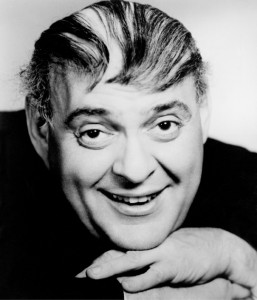 Zero Mostel portrait on last post spurred HG thoughts about that comic genius/egomaniac/monster. He got his unusual name when he made his debut at the Cafe Society night club in Greenwich Village. He had no background. No reputation. Therefore, he was dubbed “Zero.” Of course, he was a sensation and his career took off like a comet until he was blacklisted in the Joe McCarthy Red Menace era. Zero named no names and rebuffed the inquisitors. He retired to his studio in the wholesale flower district of Manhattan and painted. He was quite a good painter. He outlasted McCarthy and triumphed in film with “The Producers,” and on Broadway with “Fiddler on the Roof,” and many other plays.
Zero Mostel portrait on last post spurred HG thoughts about that comic genius/egomaniac/monster. He got his unusual name when he made his debut at the Cafe Society night club in Greenwich Village. He had no background. No reputation. Therefore, he was dubbed “Zero.” Of course, he was a sensation and his career took off like a comet until he was blacklisted in the Joe McCarthy Red Menace era. Zero named no names and rebuffed the inquisitors. He retired to his studio in the wholesale flower district of Manhattan and painted. He was quite a good painter. He outlasted McCarthy and triumphed in film with “The Producers,” and on Broadway with “Fiddler on the Roof,” and many other plays.
HG remembers waiting before the smoked fish counter at Zabar’s, the renowned food emporium on the Upper West Side. Zero was there and he and HG chatted and expressed mutual admiration for Zabar’s Russian pumpernickel bread. HG told Zero pumpernickel and chicken fat had been his favorite after school snack. Commented Zero: “Pumpernickel and chicken fat killed more Jews than Hitler.”